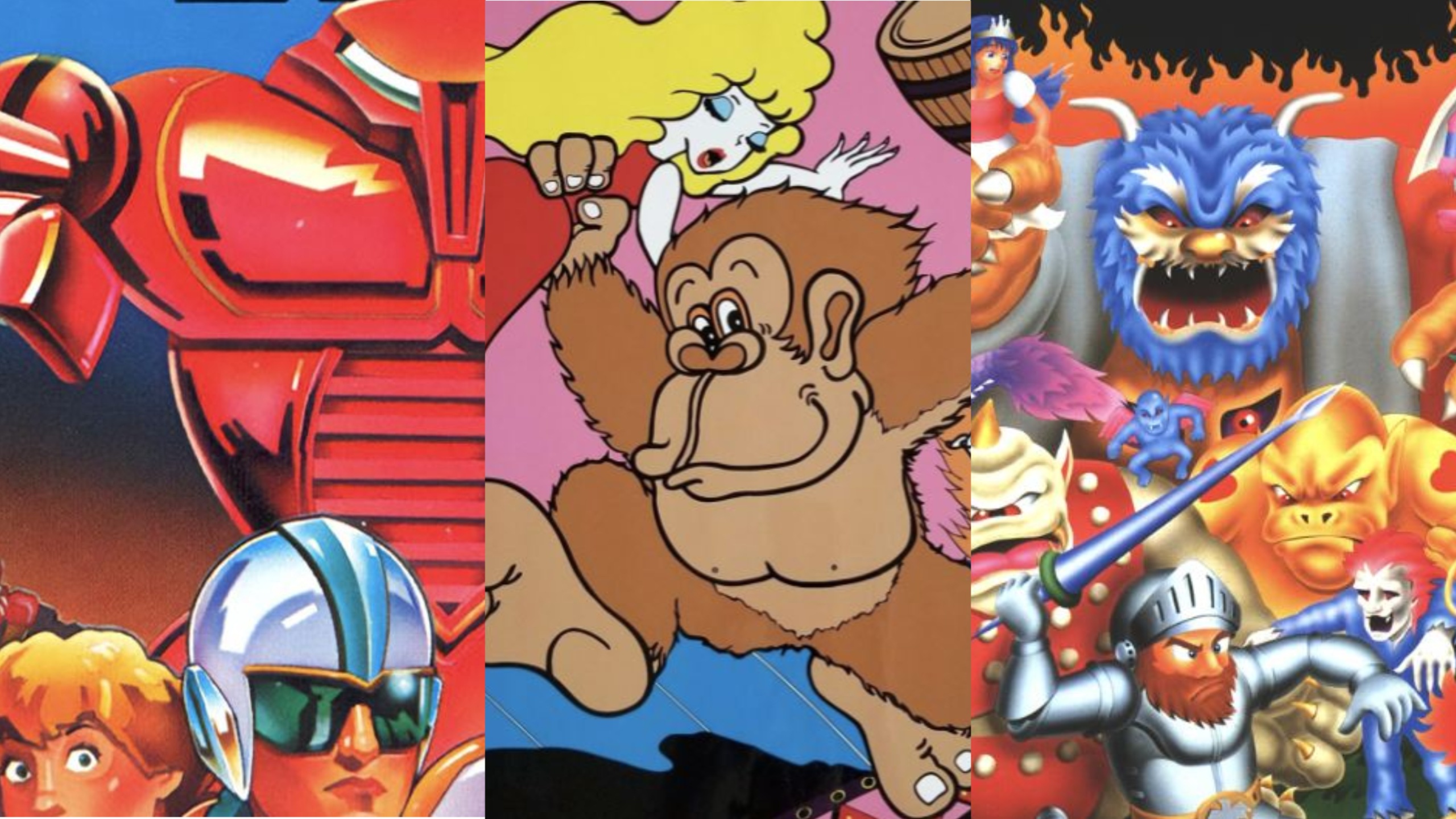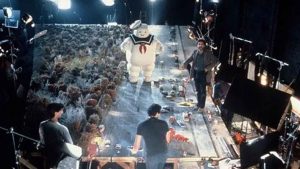
If you think modern microtransactions are bad, check out a few classic arcade games sometime. Sure, they might only ask for a quarter or 50 cents to play, but that’s just the starting price. As soon as you run out of lives, it’s time to feed the machine again. In theory, you might be able to beat an arcade game for just a quarter. Actually getting there took weeks or months of practice.
It wasn’t uncommon to have to drop $20, $50, or even more to see the ending of some old arcade games. And of course, that was just for one playthrough. Yup, classic gaming was a whole different beast from what we have in the 21st century with its host of mods and accessibility options. But even taking into account that these games were designed to make as much money as possible off of you, a few were truly devious.
15. Bagman
Bagman is one of the more obscure arcade games of the ‘80s, but anyone who has encountered it likely remembers its brutal difficulty. Much of the challenge stems from the surprisingly complex gameplay of the era. You can see influences from titles like Pac-Man, Dig Dug, and Donkey Kong, but Bagman is very much its own thing.
As the Bagman, you’re tasked with picking up money bags in a mine and taking them to a wheelbarrow on the surface. But to do this, you have to avoid guards, carts, and elevators. You can even fight back with a pickaxe, though that requires setting down a bag of cash. There’s just a lot that can go wrong in a run, making it very difficult for any credit to last very long.
14. Haunted Castle
You may not have heard of Haunted Castle, but it’s actually part of the long-running Castlevania franchise and even stars Simon Belmont. It also looks fantastic for its time with big, well-animated sprites, and a soundtrack that still goes pretty hard. In theory, this should be a classic game. So why isn’t it more fondly remembered? Well, the high difficulty keeps it from being very enjoyable.
In many ways, Haunted Castle exemplifies some of the worst excesses of arcade game design. The controls are overly stiff and were probably made that way on purpose. Enemies are cheap and frequent, there are plenty of tricky jumps, and then each of the six stages culminates in a brutal boss fight. This is clearly a game more interested in sucking quarters out of you than actually being fun.
13. Smash TV
At the time of its release, Smash TV was something of an anomaly. While most arcade games were still trying to appeal to wider audiences, this was one of the first games to lean into exaggerated violence and a dystopian setting inspired by movies like Robocop. While the gameplay was your fairly standard twin-stick shooter (nothing new, even at the time), the novel aesthetic quickly made Smash TV a favorite among arcade fans.
But man, is it a difficult game. The enemies are just relentless, and picking up the wrong weapon can quickly end a run. If getting trapped in a corner by a horde of enemies doesn’t do you in, one of the game’s bullet sponge bosses will probably finish the job. Adding to the difficulty is the game’s length. Even a good run will take you around an hour to see the credits. If you’re not good at the game, you’re going to spend a small fortune getting to that point.
12. Robotron: 2084
Smash TV is difficult, but what’s even harder is the twin-stick shooter that popularized the genre (and shares the same designer, Eugene Jarvis). Robotron: 2084 is just pure chaos from the very beginning. There are just so many different enemies coming at you from every direction, and the screen can quickly fill up with projectiles,
Add 40-year-old graphics that sometimes obscure the action on-screen, and somewhat finicky controls and you have a recipe for a game that was difficult at release and damn near soul-crushing for any younger gamers who dare to try and tackle it now. Oh, and that goes double for any ports or emulated versions that mess up the controls even more.
11. Donkey Kong
You might be wondering how Donkey Kong got on this list. After all, hasn’t pretty much everyone gotten through its four stages and rescued Pauline by now? Sure. That’s easy. Almost anyone can do that in an afternoon. But that’s not really the end of the game. Once you cycle through those four stages, the game loops back to the beginning, but everything moves just a little faster.
Beat the game again, and the obstacles speed up even more. And this just continues until Donkey Kong becomes one of the most hellacious digital experiences ever devised. It takes real skill and dedication to get to the real ending of the game: Level 130, the infamous kill screen.
10. Dragon’s Lair
At a time when most video games still looked like they were made out of Lego blocks, Dragon’s Lair seemed like it had been magically transported from the future to give gamers a glimpse of what graphics could be like decades down the line. Its beautifully animated sequences still hold up better than those of many modern games.
But of course, those gorgeous graphics were really more sleight of hand than anything else. Dragon’s Lair is essentially an interactive movie with quick time events. That’s not necessarily a bad thing, but the sluggish inputs and lightning-fast reflexes required to avoid instant death meant that it cost many gamers a whole lot of money to actually see this adventure to its end.
9. Defender
Side-scrolling shooters have always been known for their high difficulty. That’s been a feature since the very first game in the genre, Defender. In theory, this should be an easy mission. Shoot alien invaders and rescue astronauts. But the enemies come fast and are increasingly unpredictable. And the hyperspace feature is no guarantee of safety. It might move you to a more advantageous part of the screen, or result in instant death.
But for the most part, Defender is at least fair. Your first few runs with it will likely result in a quick game over, but practice can result in fairly good scores. And death is usually the result of your own dumb mistakes rather than unfair AI.
8. Zaxxon
As we’ve already seen, when games start experimenting with new ideas, that tends to make them much more difficult than the games that inspired them. Zaxxon is actually one of the first games to feature an isometric perspective. That gave it a really unique look that helped it stand out in crowded arcades (and that still holds up well today) but also meant that now gamers had to contend with maintaining the right height and position to avoid some obstacles.
Add in the fact that your ship is constantly moving forward at a rate of speed you can’t control (and that you can run out of fuel), and it’s easy to see why so many runs quickly end in disaster. It’s still a really fun, quirky game, though.
7. Tempest
Tempest remains one of the more unique experiences arcades have ever offered. At a time when most developers were trying to copy the success of Pac-Man or Space Invaders, its rotary knob controller and vector graphics (an early attempt at first-person gameplay) stood out as something completely novel for the era. Tempest is more akin to a psychedelic experience than a traditional arcade game.
The unique gameplay is one source of difficulty, but there’s also just so much content here, and it’s so easy to screw up if you’re trying to beat all 99 stages (and go beyond even that). Sure, you can pick which level to start on, but that’s not going to help much if you don’t have the skills to keep up with the game’s relentless enemies.
6. Ultimate Mortal Kombat 3
Fighting games have always been known for their brief story modes. If you’re decent, you can breeze through most of them in 10-15 minutes. So, early arcade fighting games had a solution to ensure most players kept feeding their machines: absolutely brutal, blatantly unfair difficulty. Playing Ultimate Mortal Kombat 3 is akin to playing a slot machine. You pretty much just win when the AI randomly decides it’s time for you to win.
To be fair, you’ll probably get through the first couple of opponents without much difficulty, then around the third match, the computer turns into Agent Smith from The Matrix, countering everything you throw at it the instant you input a move. It’s dumb and manipulative. Thankfully, such shenanigans are now much rarer as fighting games have moved out of the arcades.
5. Missile Command
Missile Command is still one of the most stressful games ever made despite its apparent simplicity. You’re in control of three anti-missile batteries. But the incoming missiles are imminently approaching, and your ammunition is limited. Of course, you’ll be able to stop some of these missiles, but not all. Never all. Devastating defeat is certain. It’s just a matter of how soon it arrives.
A handful of skilled players have passed all 256 stages of Missile Command; a feat that takes hours (a lifetime in arcade gaming terms). Most players haven’t gotten anywhere close to that. After all, the goal of Missile Command isn’t really to win, but to hold out against the inevitable as long as possible.
4. Stargate
Stargate is the sequel to Defender, and also known as Defender II in some ports, so that should give you some idea of the level of difficulty to begin with. While the basic gameplay remains the same, everything now moves even more quickly, and newly added enemies feature more erratic attack patterns and even homing attacks.
But what really makes Stargate so difficult is that no matter how much time you spend studying the game, pattern recognition is only going to help a little. This is one of those titles that goes out of its way to push your hand-eye coordination to its absolute limits. If your skills are lacking in that area, you’re always going to have trouble getting a high score.
3. Ghosts ‘N Goblins
Where would any list of difficult games be without an appearance from Ghosts ‘N Goblins? The NES port may be better known nowadays, but the franchise actually got its start in arcades. That original arcade game is just as ridiculously difficult as its console brother. Actually, it may be even more difficult since there were no cheats for that version of the game back in the day. Either you got good enough to beat the game, or you died. A lot. And just kept paying more to keep going.
While more “fair” than other arcade titles, this is still a game designed to make as much money off of you as possible. Two hits result in death. Enemies randomly spawn from all directions. Projectiles can fill the screen, and there are plenty of tricky jumps you have to nail just right. And you have to go through all of this twice to see the game’s true ending. Good luck.
2. Gravitar
Gravitar’s lead developers have publicly admitted that they can’t even beat its hardest levels, and they certainly didn’t expect players would be able to do it either. That alone should tell you almost everything you need to know about its ridiculously high difficulty level.
Everything about this game is meant to test your patience. First, there’s the thruster controls. OK, Asteroids pioneered that, and plenty of gamers were familiar with these types of controls when Gravitar was released, but they’re still known for being extra touchy. You then have to consider how important gravity is to the gameplay. No matter where you’re going, it’s always pulling you somewhere, so you have to take that into account. But then Gravitar just starts messing with you by adding reverse gravity, and, eventually, invisible landscapes. Finally, you will encounter the joys of reverse gravity in invisible landscapes. If it had a controller to throw across the arcade, most gamers would have done it by that point.
1. Sinistar
“Beware, I live.” Those iconic words from Sinistar have spelled almost instant doom for countless gamers over the years. Gameplay-wise, Sinistar is actually one of the more innovative games of the time, though those innovations contribute to its high difficulty. You’re placed in an open area of space and need to start collecting “Sinibombs” by shooting planetoids. These are the only weapons that can actually defeat Sinistar once it awakens. Oh, and if you don’t take it out quickly enough, its minions can repair themselves.
While Sinistar actually isn’t on the board at the start of each level, it’s quickly assembled. When it’s ready, it comes speeding toward you with all the rage of a pissed-off grizzly bear. One hit and your ship is destroyed. Basically, everything is working against you from the start to keep your score low and ensure you keep pumping quarters into it. It’s rare for any run to last more than just a few minutes.
The post 15 Most Difficult Arcade Games Ever appeared first on Den of Geek.












